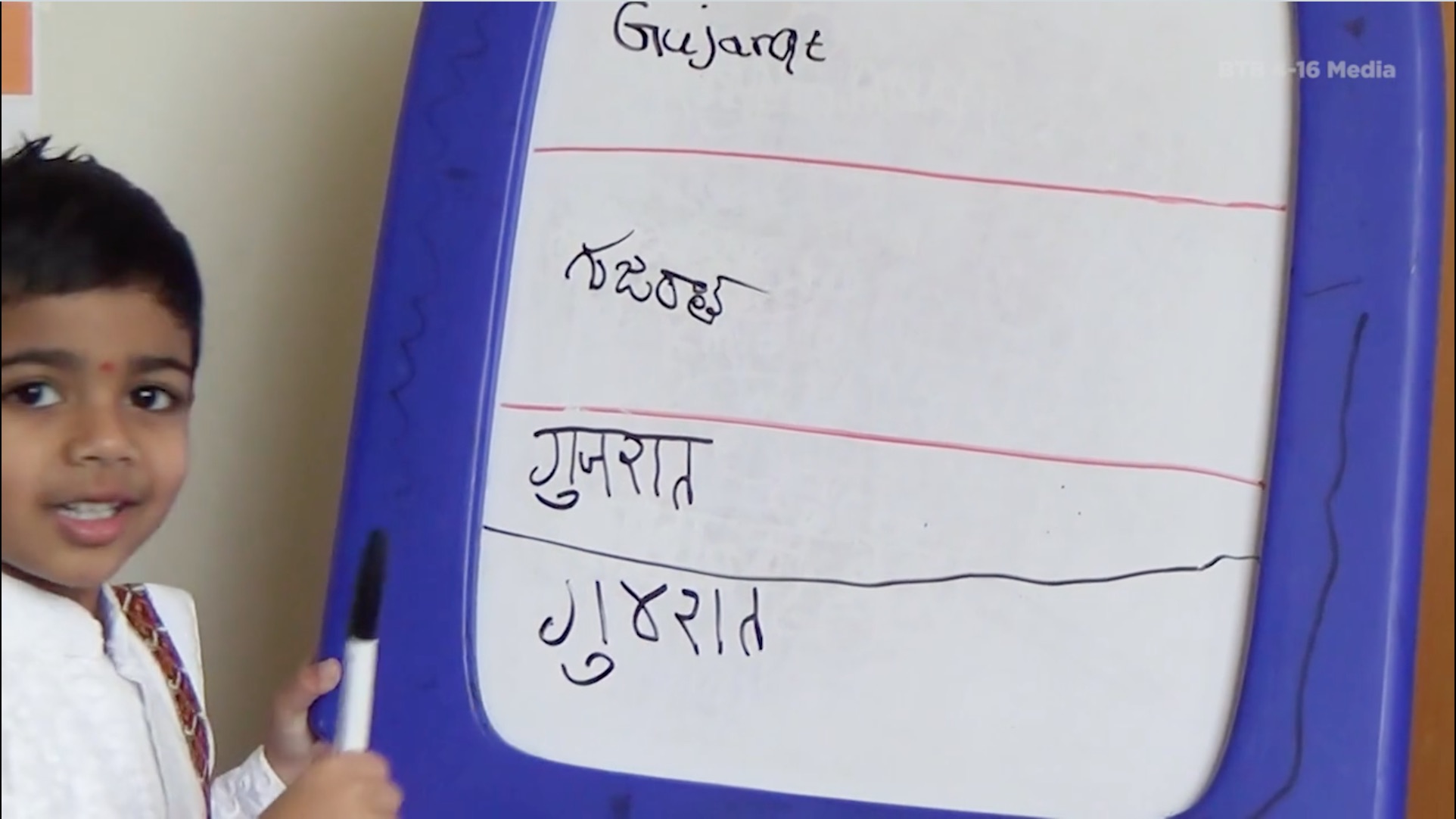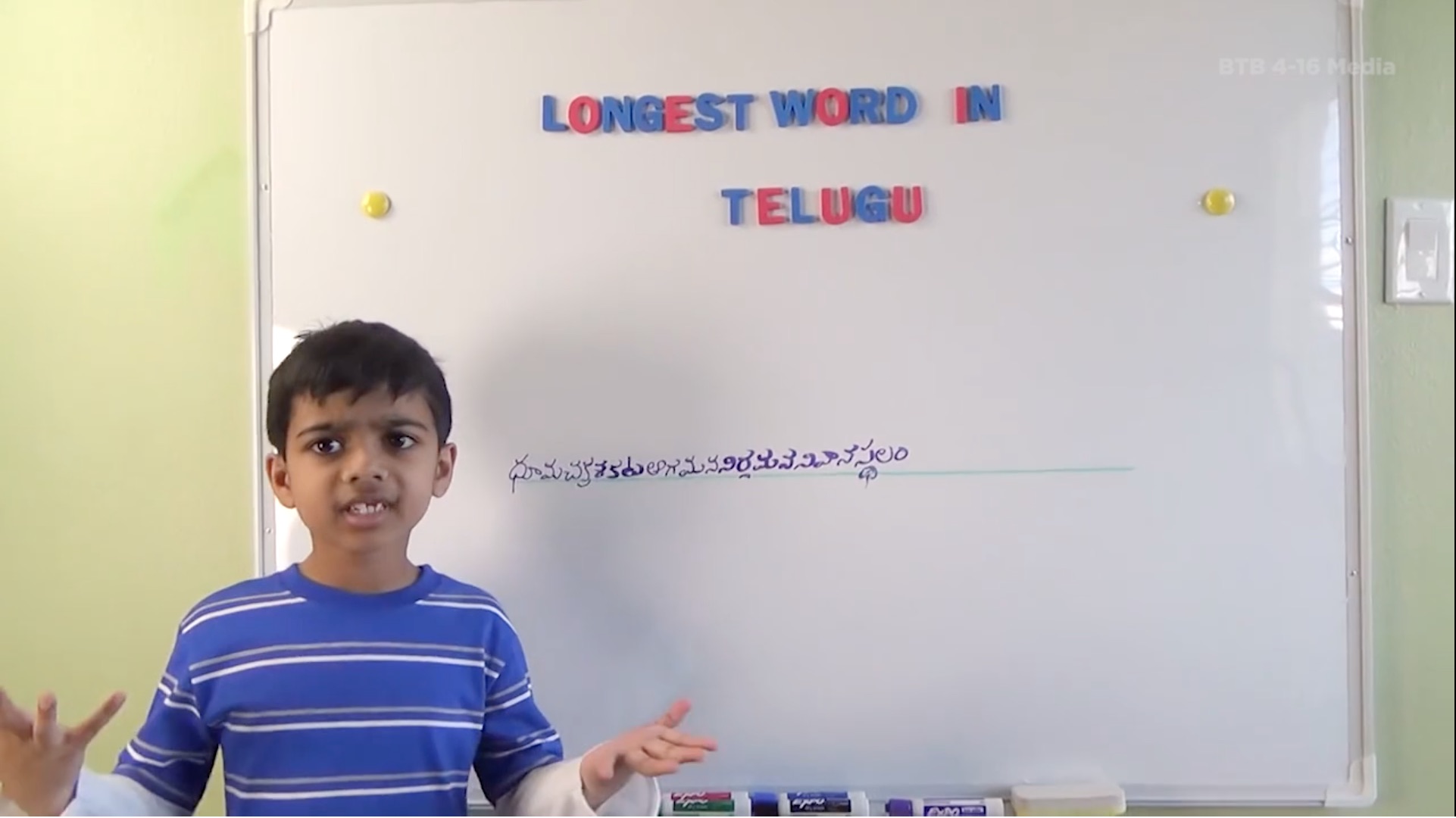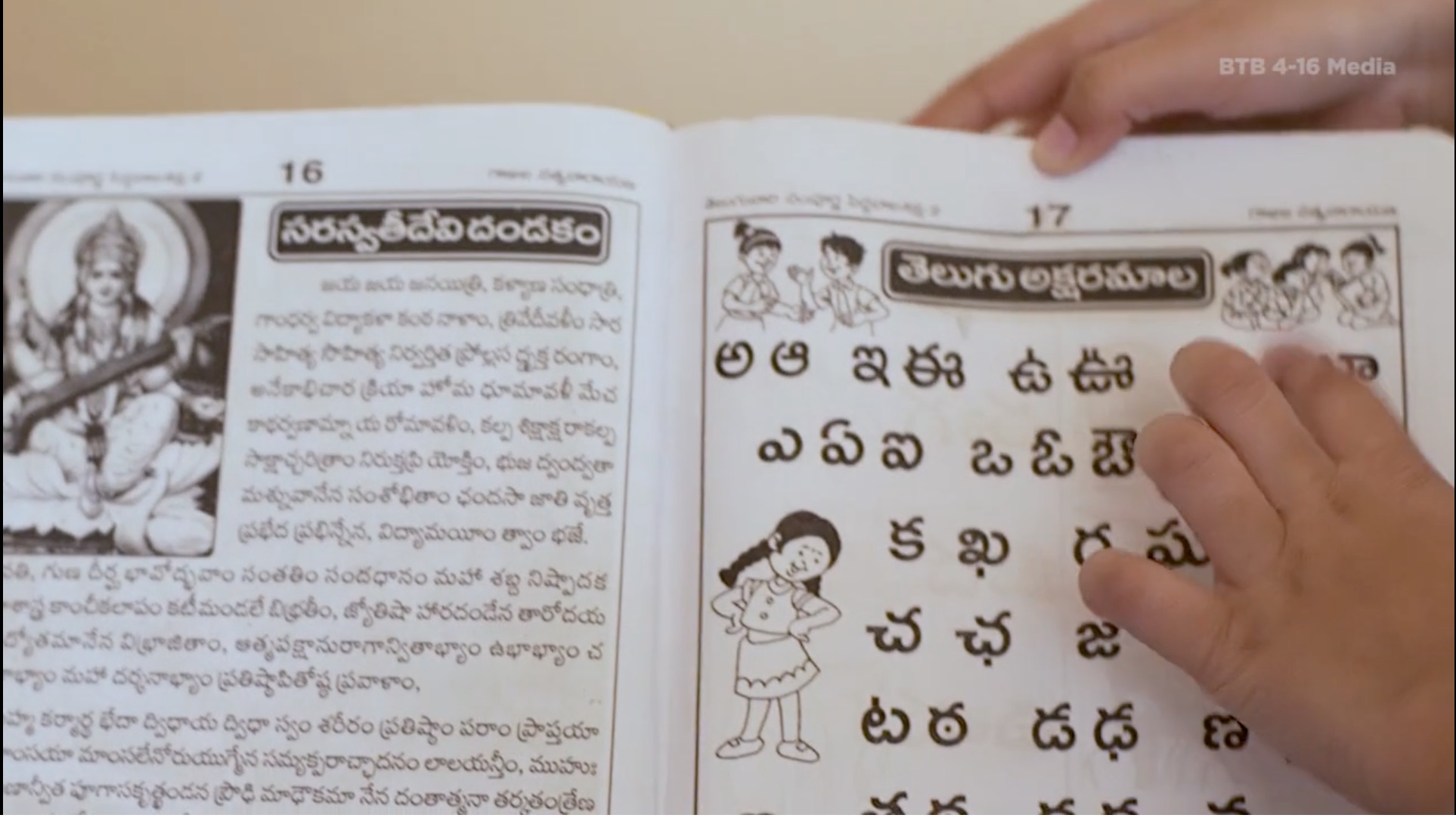The worldly sport of spelling
« previous post | next post »
Following on the victory of Karthik Nemmani in the Scripps National Spelling Bee — the 11th straight Indian-American to win the competition — the New York Times has an interview with Sam Rega, whose new documentary Breaking the Bee explores how kids of South Asian ancestry have come to dominate the Bee in recent years. I wrote about Breaking the Bee for The Atlantic last month — as I said there, it's a compelling film, and I hope it gets a distribution deal soon. (Currently it's on the film-festival circuit.) In the Times interview, Sam makes a point about the spellers' multilingual backgrounds that I didn't have room to discuss in my Atlantic piece.
Is there something about South Asian values or families that explains success in spelling?
To me, the key is how much these families believe in the idea of family. And how much spelling is a family sport. They believe in working together as a family unit. They want to create a bond between parent and child. Spellers look to their parents as role models and coaches. Their siblings often play assistant coach. Parents like to instill values like dedication, hard work, and how to handle yourself in defeat or success.
These families also tend to be multilingual, sometimes with moms and dads who speak different languages. Exposure to multiple languages can also play a role in spellers’ facility with spelling. Spelling is a worldly sport, it connects you to languages and places far away from you.
In Breaking the Bee, this multilingualism is on display among the featured spellers, particularly the irrepressible Akash Vukoti, who first went to the National Spelling Bee at the age of 6 in 2016. (He competed again this year and was eliminated in the third round, but he has many years of eligibility ahead of him.) Akash has grown up with literacy in Telugu, Hindi, and English, and he has clearly been raised with an appreciation of linguistic (and orthographic) diversity. Here are some screenshots from the film, with Akash showing off his multilingual chops.
In addition to the languages he already knows, Akash is also interested in learning German and Hebrew, according to his dad.
Here's the trailer for Breaking the Bee to whet your appetite.




Laura Morland said,
June 2, 2018 @ 4:07 pm
Engrossing trailer; moving, too — I can't wait to see the film!
Victor Mair said,
June 2, 2018 @ 5:09 pm
Previous posts
“Spelling bee champs” (6/1/14)
http://languagelog.ldc.upenn.edu/nll/?p=12700
“Spelling bees and character amnesia” (8/7/13)
http://languagelog.ldc.upenn.edu/nll/?p=5669
“Character amnesia and the emergence of digraphia” (9/25/13)
http://languagelog.ldc.upenn.edu/nll/?p=7142
“Of toads, modernization, and simplified characters” (8/16/13)
http://languagelog.ldc.upenn.edu/nll/?p=5838
“Brain imaging and spelling champions” (8/7/15)
http://languagelog.ldc.upenn.edu/nll/?p=20542
“Il ne parle pas français” (7/23/15)
http://languagelog.ldc.upenn.edu/nll/?p=20144
“Spoken Sanskrit” (1/9/16)
http://languagelog.ldc.upenn.edu/nll/?p=23412
"Once more on the mystery of the national spelling bee" (5/27/16)
http://languagelog.ldc.upenn.edu/nll/?p=25941
"Spelling bees in the 1940s" (7/10/16)
http://languagelog.ldc.upenn.edu/nll/?p=26701
"Yet again on the mystery of the national spelling bee" (6/5/17)
http://languagelog.ldc.upenn.edu/nll/?p=33061
See also:
"Why Indian-Americans Reign As Spelling Bee Champs" (NPR, 5/29/12)
http://www.npr.org/2012/05/29/153898668/why-indian-americans-reign-as-spelling-bee-champs
“Why Chinese Kids Are Terrible At Spelling Bees: Globalization brings texting and spelling bees to China, with unfortunate results” (Popular Science, 8/13/13)
http://www.popsci.com/science/article/2013-08/why-chinese-kids-are-terrible-spelling-bees
Ralph Hickok said,
June 2, 2018 @ 5:25 pm
I'd love to know what the "10% other" is!
David Morris said,
June 2, 2018 @ 8:32 pm
This is very similar to Spellbound (2002), which may be mentioned in one of the linked articles, but isn't here. From memory, two of the eight featured students were Indian/American, including (spoiler) the winner.
Phillip Minden said,
June 3, 2018 @ 3:25 am
Am I the only one to read the bottom line in the first picture as a Hebrew rendering of Guda'ut, wondering for a fraction of a second if this is Judaeo-Gujarati?
Benjamin E. Orsatti said,
June 3, 2018 @ 8:10 am
What's the "swoosh" underneath the vav?
Phillip Minden said,
June 3, 2018 @ 10:56 am
I know Judaeo-Gujarati?
tangent said,
June 3, 2018 @ 10:46 pm
I've heard it proposed that bilingualism is a trade-off, with some delay of proficiency in each language. If that's true, you'd expect very few bilingual kids at the top end of the distribution. So suggests not.
Graeme said,
June 4, 2018 @ 2:28 am
Ralph. Genes, or fortune. (Which may be the same thing.)
Are there variants or alternatives where the kids are expected to know the meaning of the words? Leaving aside that the judging would be more difficult, that kind of task strikes me as a more useful game. But then I'm from a land where spelling bees weren't common and a recent attempt to leverage the US phenomenon via a tv show petered out after 1.5 series. https://en.m.wikipedia.org/wiki/The_Great_Australian_Spelling_Bee
Ben Zimmer said,
June 4, 2018 @ 12:32 pm
@Graeme: The kids competing in American spelling bees do need to know the meanings of words, along with the meanings of their etymological roots in various languages, or else they won't get very far. The Scripps Bee added vocabulary questions to the preliminary rounds a few years ago, testing the kids on meanings, but it wasn't a big problem for the top spellers, since that's the way they'd been learning words all along.
Dan said,
June 4, 2018 @ 2:04 pm
Phillip, the bottom line is simply Gujarati script for "Gujarat". See how similar it is to the Hindi script in the line just above it, just without the horizontal connecting line.
Phillip Minden said,
June 4, 2018 @ 2:13 pm
Yes, of course – sorry if I wasn't clear. It just, by pure coincidence, looks amusingly similar to contemporary Israeli Hebrew script.
Giodisseo said,
June 15, 2018 @ 6:27 pm
"The only way Indian-American kids are losing the spelling bee is if they switched to Spanish next year"
What a silly thing to say. One year's long enough to learn the rules of Spanish orthography, which would make the very notion of a spelling bee in that language – like in all other sensible languages (said I tongue-in-cheek) – moot.